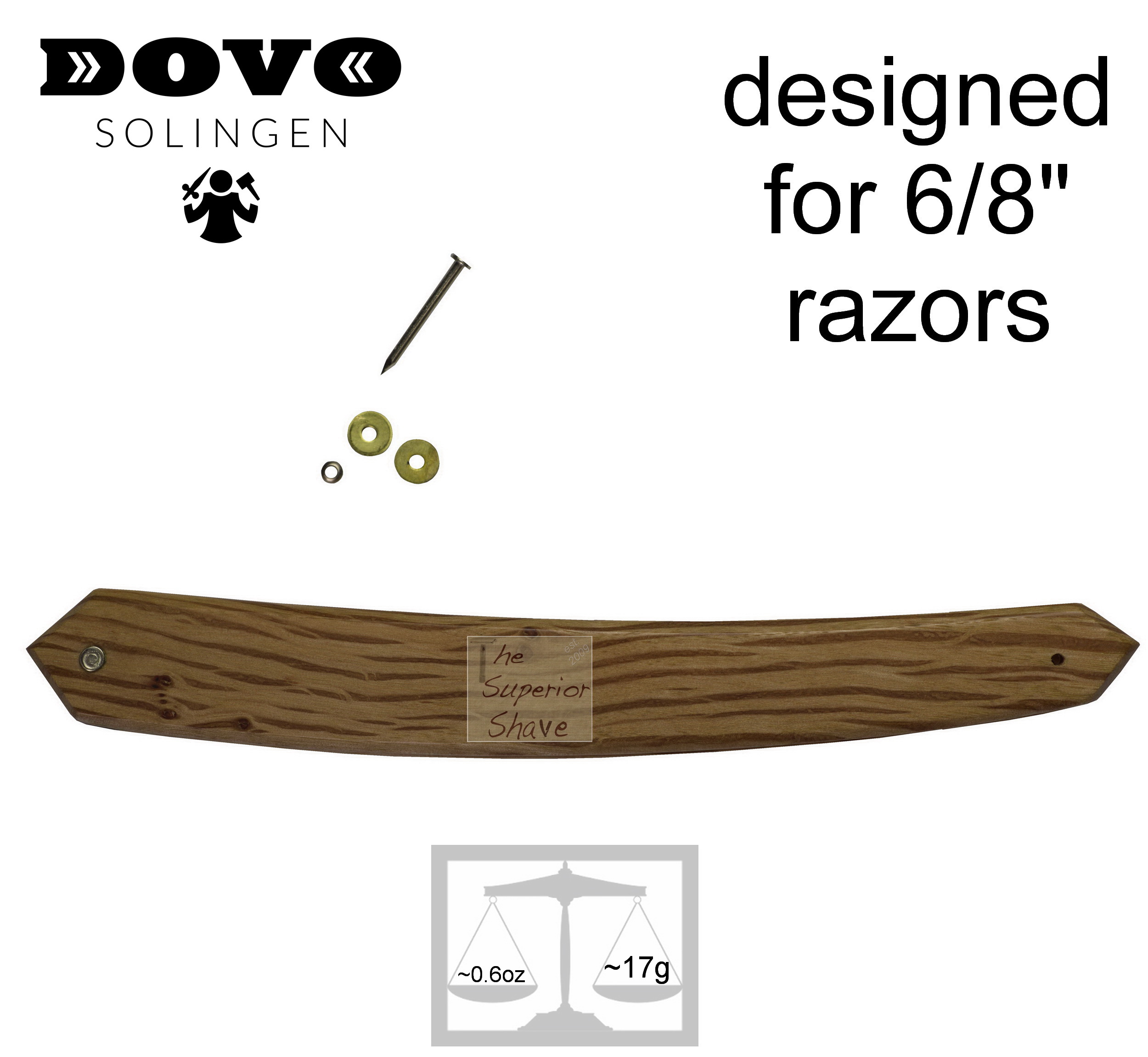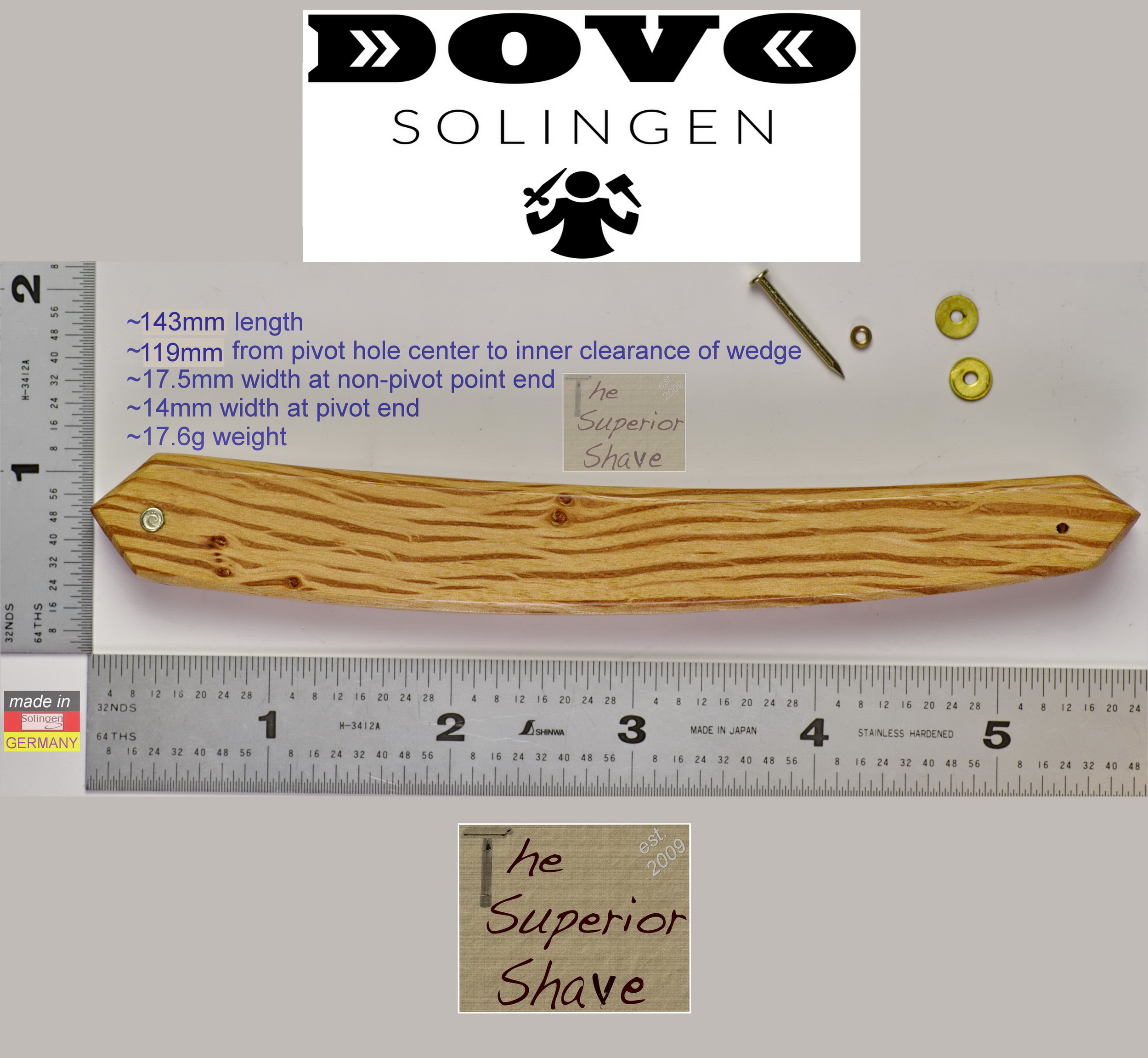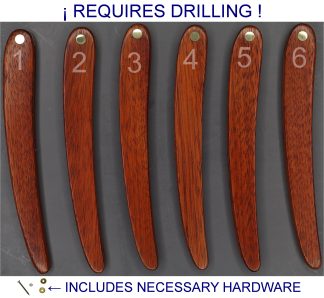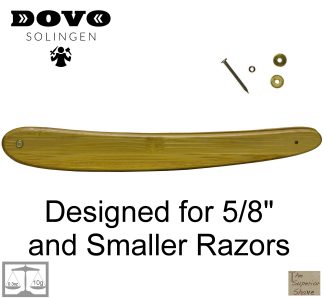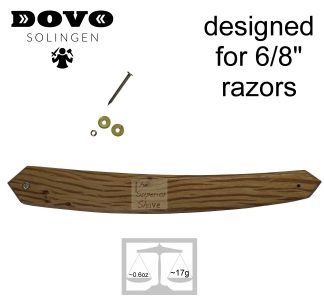Description
The Dovo straight razor replacement scales are appropriate for most 6/8″ and smaller straight razors, and the scales are made of Spanish oak wood.
Dovo shapes, polishes, and assembles these scales by hand in their Solingen, Germany factory. The ‘blanks’ age for months, allowing resistance to temperature/pressure/humidity variances to build; while they’re not as inert as the micarta on a Dovo en vogue, mind you, they are good enough to earn the German reference of “noble wood” (noble as reference to noble gases, which I like to call ‘the boring gases’…bunch of wankers)
Replacement straight razor scales have become a vital part in The Superior Shave‘s fight to stay solvent! Trust me, it is not an easy battle. The days of giving up this passionate gig loom close on the horizon, so vote with your damn money for what you want to happen. Did you ever watch a video of a run down feral cat and hoped it had a better future? Now’s your chance, for some lame fifty-something wanker. Vote with your money.
Made to Fit the 6/8 Modern Standard Razor Dimensions
Current production size 6/8 German razors will fit. To be sure of your particular razor as there are so many thousands of brands, measure the distance from your razor’s pivot pin hole to the furthest point away on the cutting edge. Your razor should have a measurement <118mm at this spot.
Wedge Pre-Installed & Built for Modern 6/8 Thickness
Furthermore, these Dovo replacement scales for straight razors are built with a wedge at the non-pivot pin already installed. The wedge angle is based on the presumption of the pivot pin zone of the razor needing the space of a current German 6/8. A range of razors can fit depending upon their tangs and your skills.
Includes All Required Hardware!
You’ll get one ‘pin and rosette’ and 2 washers with your replacement straight razor scales. The scales are already given their hand-fitted-and-sanded wedge/pinning for the non-pivot end, and also already pre-drilled at the pivot pin.
INSTALLATION TIPS
To install, first remove any incumbent scale/hardware. Line up razor and scale, and put the rosette and pin in with washers between each side of the tang and inside of scales. Nail in to some soft wood, or preferably use a jewelry anvil. Crimp off the rear excess of the pin, and begin peening the backside. Use a small ball peen hammer with the pin head flush to a firm surface such as a jewelry anvil.
It helps to open the razor to the loosest point and hold in this position while hitting the rear of the pin. Hammer from various approach angles. Be certain the head of the pin touches the backing surface, and not the wood. It is a moderate skill, much like stropping and wielding the blade for its purpose.

